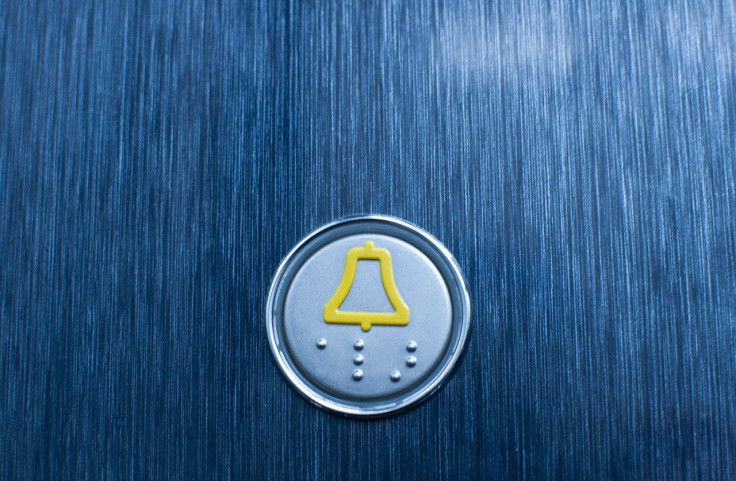3 Companies Recall Thousands Of Residential Elevators Over Child Injury, Death Risks
KEY POINTS
- The CPSC and three elevator companies issued the recall Tuesday
- There have been incidents of serious injury and even death related to home elevators
- The CPSC also warned against using elevators made by a fourth company over its 'refusal to cooperate with a recall'
Three major companies are recalling thousands of residential elevators due to child injury and death risks. Authorities previously warned of the hazards posed by such products.
The problem with the residential elevators in question is that children can get stuck between their hoistway door and interior elevator car door gate if there is a "hazardous gap," the U.S. Consumer Product Safety Commission (CPSC) noted in the announcement Tuesday. When this happens, a child can get serious injuries or even die if the elevator is suddenly called to another floor.
The agency already warned of such hazards in July 2021, citing incidents involving children aged 2 to 12 who were "crushed to death" or who suffered serious injuries in the dangerous gap. In 2020 for instance, a company issued a recall of its private elevators after receiving "at least four reports" of serious injuries, from bruising on the face to a crushed spine and fractured hip.
Home elevators pose a hidden and deadly hazard: young children can be crushed to death in a gap that may exist between the doors. pic.twitter.com/aK1GNTmW0l
— US Consumer Product Safety Commission (@USCPSC) January 11, 2022
The three companies issuing the current voluntary recalls are Bella Elevator, Inclinator Company of America and Savaria Corporation. In total, some 69,000 elevators are being recalled, with 10,500 units affected by the Bella Elevator recall, 39,300 units affected by the Inclinator Company of America recall and 19,500 units affected by the Savaria recall, which also affects Garaventa branded residential elevators.
The recalls affect various models from each company. None of the three firms have reported injuries or incidents related to the recalls.
Those who have the affected products are being advised to keep young children away from the residential elevators and contact the companies to find out how to take measurements for space guards. The companies will then provide the space guards for free and may also assist with the installation if requested, the CPSC noted.
"We are pleased to be working with the CPSC on this recall, in which we are providing free space guards where needed to increase the safety of our residential elevators," the joint statement from Bella, Inclinator and Savaria noted. "We are proud to be leaders in the residential elevator industry in addressing this important issue, in cooperation with the CPSC."
Consumers may find answers to some important questions regarding the recalls here. They may also contact Bella Elevator at 877-375-1428, Inclinator Company at 833-620-2949 or Savaria at 855-983-5520 if they have inquiries about the recall.
"This is an important step that will prevent further harm from potentially tens of thousands of residential elevators," CPSC Chair Alexander Hoehn-Saric said in the announcement.
Urgent Warning
Hoehn-Saric further noted that the agency has yet to reach an agreement with all elevator companies to address the hazard. In a news release, the CPSC announced further steps in the efforts to remove this hazard to children and warned against using elevators made by a fourth company — Waupaca Elevator Company — as it reportedly "refused to cooperate with a recall."
CPSC Announces Additional Steps Towards Eliminating Child Entrapment Hazard in Residential Elevators; Three Recalls and One Warning Issued; Consumers Warned to Check Residential Elevators, including at Rental Homes: https://t.co/3V932qMj2Z
— US Consumer Product Safety Commission (@USCPSC) January 11, 2022
In an "urgent warning," the CPSC cited an incident in 2011 when a 4-year-old child got trapped between the hoistway door and the elevator car door of the Waupaca Model 014. The child was found dangling upside down in the elevator shaft and suffered physical scarring as well as permanent loss of vision.
"This is an issue that affects residential elevators broadly," the CPSC noted, adding that three children were trapped in other manufacturers' home elevators in the summer of 2021, one of whom was "fatally crushed" by the elevator in a vacation home.
The CPSC is still investigating the safety of residential elevators and is advising people to check the safety of such products, whether they are installed in their home or a vacation home that they're renting. Some important tips include making sure that the gap between the doors is not more than four inches deep and having elevators examined by a qualified inspector for any potential hazards.

© Copyright IBTimes 2024. All rights reserved.






















